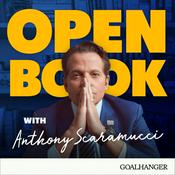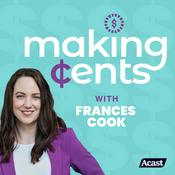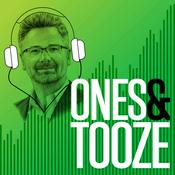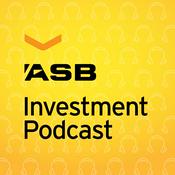422 episodes
- If you could order a presidential administration to do one specific thing to improve the lives of working people — what would it be?
At Democracy Journal’s recent conference in Washington, DC, Nick and Goldy heard some of the country’s leading economic thinkers take their best shot at that magic-wand question: one idea, three minutes, no BS.
The result is a rapid-fire lineup of bold proposals — from fixing Social Security and raising wages to reclaiming time, strengthening unions, and rethinking what “affordability” really means.
This week, we’re sharing some of our favorites with you. This episode is a quick policy lightning round packed with big ideas, sharp arguments, and plenty to discuss.
Elizabeth Garlow is a Senior Fellow at New America focused on economic policy and the future of work, with research centered on time, caregiving, and policies that improve everyday economic security.
Jim Kessler is the Executive Vice President for Policy at Third Way, where he works on economic reforms aimed at expanding wealth-building opportunities and retirement security for working families.
Thea Lee is a visiting fellow at American University and a longtime labor economist specializing in worker rights, trade policy, and labor standards in global supply chains.
Heidi Shierholtz is president of the Economic Policy Institute, where she focuses on wage growth, labor markets, and policies that strengthen workers’ bargaining power and reduce inequality.
Website: http://pitchforkeconomics.com
Facebook: Pitchfork Economics Podcast
Bluesky: @pitchforkeconomics.bsky.social
Instagram: @pitchforkeconomics
Threads: pitchforkeconomics
TikTok: @pitchfork_econ
YouTube: @pitchforkeconomics
LinkedIn: Pitchfork Economics
Twitter: @PitchforkEcon, @NickHanauer
Substack: The Pitch - Can we build an economy that delivers abundance without abandoning democratic accountability and economic equity?
Recorded live at Democracy Journal’s “Can’t We All Just Get Along?” conference, this episode features a wide-ranging panel discussion on one of the most consequential debates shaping today’s political economy: whether abundance and social democracy are in tension—or whether they’re mutually reinforcing.
Moderated by Ed Luce of the Financial Times, the panel brings together Baillee Brown (Inclusive Abundance), Jerusalem Demsas (The Argument), Mike Konczal (Economic Security Project), and Sandeep Vaheesan (Open Markets Institute) to wrestle with what it actually takes to deliver housing, clean energy, and public goods at scale—without ceding power to concentrated markets or hollowing out democratic governance.
At a moment of deep political discontent and institutional distrust, this conversation helps clarify the real choices facing policymakers—and why getting this balance right is essential to rebuilding public faith in government.
Ed Luce (moderator) is the U.S. national editor and a columnist at the Financial Times, where he writes on American politics, democracy, and global political economy.
Baillee Brown (panelist) is a policy advocate and the founder of Inclusive Abundance, where she works with lawmakers to advance a pro-building, outcomes-focused approach to delivering housing, clean energy, and public goods.
Jerusalem Demsas (panelist) is founder and Editor in Chief of The Argument a publication and podcast covering housing, economic policy, and the politics of affordability.
Mike Konczal (panelist) is the Senior Director of Policy and Research at the Economic Security Project, where he focuses on inequality, housing, industrial policy, and the political economy of growth.
Sandeep Vaheesan (panelist) is the legal director at the Open Markets Institute and a leading voice on antitrust, corporate power, and the role of public authority in building a more equitable economy.
Website: http://pitchforkeconomics.com
Facebook: Pitchfork Economics Podcast
Bluesky: @pitchforkeconomics.bsky.social
Instagram: @pitchforkeconomics
Threads: pitchforkeconomics
TikTok: @pitchfork_econ
YouTube: @pitchforkeconomics
LinkedIn: Pitchfork Economics
Twitter: @PitchforkEcon, @NickHanauer
Substack: The Pitch A Government Built to Stall—and What That Means for Democracy (with Hannah Garden-Monheit)
03/2/2026 | 45 mins.If democracy is going to survive, it has to deliver.This week, Goldy and Civic Ventures president Zach Silk are joined by Hannah Garden-Monheit, a former senior official in the Biden-Harris administration, for a conversation about one of the most urgent questions in American politics: why our government so often fails to produce visible results for working people—and what that means for what comes next.At a time when public institutions are being dismantled faster than they were ever built, this episode looks beyond easy cynicism and asks what it would take to rebuild a government people can trust, feel, and believe in again. Because the next governing moment won’t just be about having the right values or policies. It will hinge on whether leaders are willing to use democratic power to make government deliver in ways that are visible, tangible, and real.
Hannah Garden-Monheit is a Senior Fellow at the American Economic Liberties Project and co-author of Building a More Effective, Responsive Government, a report from the Roosevelt Institute. She previously served as Director of the Office of Policy Planning at the Federal Trade Commission and as Special Assistant to the President for Economic Policy on the White House National Economic Council.
Further reading:
Building a More Effective, Responsive Government: Lessons Learned from the Biden-Harris Administration
Website: http://pitchforkeconomics.com
Instagram: @pitchforkeconomics
Threads: pitchforkeconomics
Bluesky: @pitchforkeconomics.bsky.social
Twitter: @PitchforkEcon, @NickHanauer, @civicaction
YouTube: @pitchforkeconomics
LinkedIn: Pitchfork Economics
Substack: The Pitch- As inequality deepens, democratic institutions strain, and climate risk accelerates, it’s becoming impossible to ignore a basic question: What is capitalism actually for?
This week, we revisit our conversation with Harvard Business School professor Rebecca Henderson who argues that today’s economic crises aren’t the result of isolated failures, but of an economic system designed around the wrong goal—maximizing shareholder value at any cost. Drawing from her book Reimagining Capitalism in a World on Fire, Henderson makes the case that markets built around cooperation, dignity, and shared prosperity don’t just serve the public good—they often outperform extractive, low-road models, while decades of trickle-down economics hollowed out institutions, rewarded cheating over value creation, and left businesses dependent on a society they are actively undermining. Together, they ask what it would take to build a new economic paradigm—one where firms exist to strengthen the communities, democracy, and planet they rely on to survive.
Rebecca Henderson is the John and Natty McArthur University Professor at Harvard Business School, where she teaches the acclaimed course Reimagining Capitalism and explores how business can help build a more just, sustainable economy. She is the author of Reimagining Capitalism in a World on Fire, and a research fellow at the National Bureau of Economic Research, a fellow of the British Academy and American Academy of Arts and Sciences, and has served on the boards of major public companies.
Social Media:
@RebeccaReCap
Further reading:
Reimagining Capitalism in a World on Fire
TED Talk: To save the climate, we have to reimagine capitalism
Website: http://pitchforkeconomics.com
Facebook: Pitchfork Economics Podcast
Bluesky: @pitchforkeconomics.bsky.social
Instagram: @pitchforkeconomics
Threads: pitchforkeconomics
TikTok: @pitchfork_econ
YouTube: @pitchforkeconomics
LinkedIn: Pitchfork Economics
Twitter: @PitchforkEcon, @NickHanauer
Substack: The Pitch - Every era runs on an economic story. For the last half-century, ours has been neoliberalism — the belief that if you free markets from constraints, prosperity will follow.
This week we revisit a bracing conversation with historian Gary Gerstle about how neoliberalism took hold, why it once felt inevitable, and why it’s now breaking down in plain sight. Drawing on his book The Rise and Fall of the Neoliberal Order, Gerstle joins Nick and Goldy to trace how a seductive promise of “freedom” — economic, cultural, and political — helped neoliberalism crowd out the New Deal order, even as it hollowed out communities, deepened inequality, and set the stage for today’s volatility. Along the way, they explore how economic crises create openings for new ideas, why the collapse of an old order is never smooth, and what it will take to build a post-neoliberal, middle-out economy that actually delivers for working people.
Gary Gerstle is an author, historian, and scholar of American political and economic history. He is the Paul Mellon Professor of American History Emeritus at the University of Cambridge and a Professor Emeritus of History at Vanderbilt University.
Social Media:
@glgerstle
Further reading:
Writing the History of Neoliberalism: A Comment
1984 Super Bowl APPLE MACINTOSH Ad
The Rise and Fall of the Neoliberal Order: America and the World in the Free Market Era
Website: http://pitchforkeconomics.com
Facebook: Pitchfork Economics Podcast
Bluesky: @pitchforkeconomics.bsky.social
Instagram: @pitchforkeconomics
Threads: pitchforkeconomics
TikTok: @pitchfork_econ
YouTube: @pitchforkeconomics
LinkedIn: Pitchfork Economics
Twitter: @PitchforkEcon, @NickHanauer
Substack: The Pitch
More Business podcasts
Trending Business podcasts
About Pitchfork Economics with Nick Hanauer
We are living through a paradigm shift from trickle-down neoliberalism to middle-out economics — a new understanding of who gets what and why. Join zillionaire class-traitor Nick Hanauer and some of the world’s leading economic and political thinkers as they explore the latest thinking on how the economy actually works.
Podcast websiteListen to Pitchfork Economics with Nick Hanauer, Shared Lunch and many other podcasts from around the world with the radio.net app
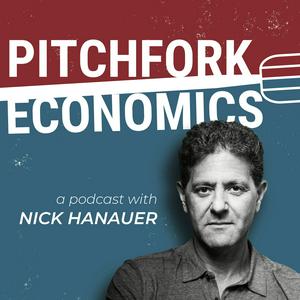
Get the free radio.net app
- Stations and podcasts to bookmark
- Stream via Wi-Fi or Bluetooth
- Supports Carplay & Android Auto
- Many other app features
Get the free radio.net app
- Stations and podcasts to bookmark
- Stream via Wi-Fi or Bluetooth
- Supports Carplay & Android Auto
- Many other app features


Pitchfork Economics with Nick Hanauer
Scan code,
download the app,
start listening.
download the app,
start listening.



